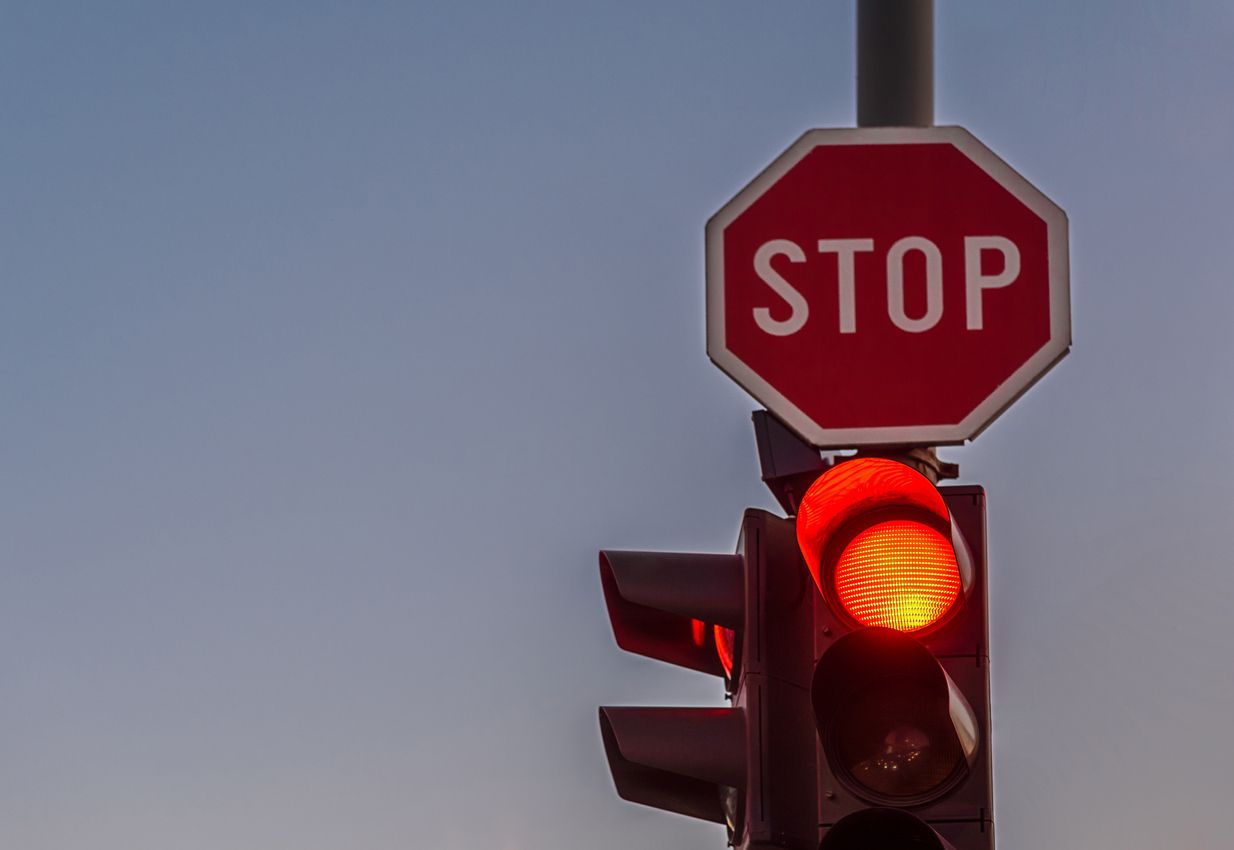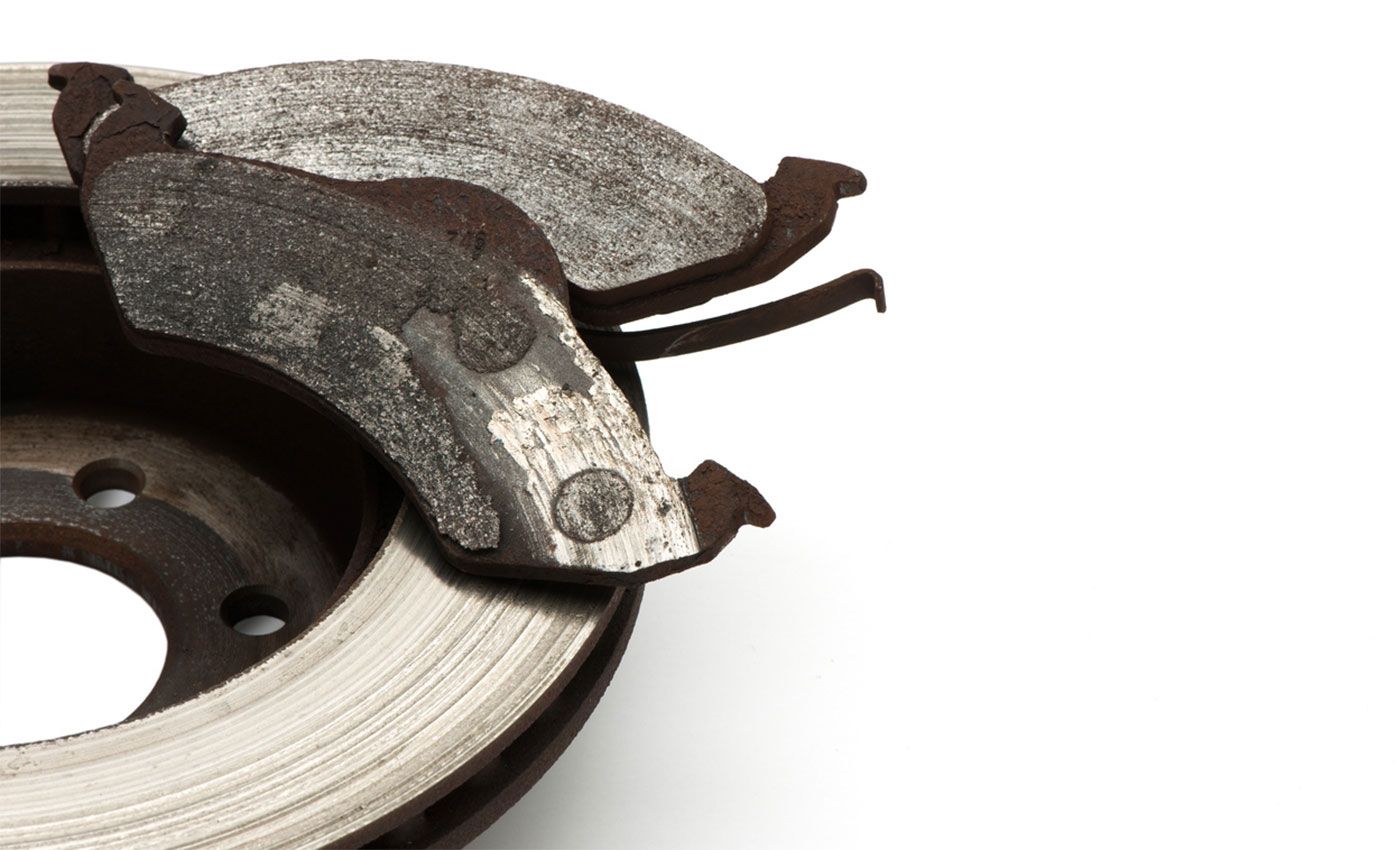Brakes are arguably the most important component of your vehicle. Sure, the engine powers your car, but you rely on brakes to bring you safely to a halt — especially in emergencies.
“So, why are your car brakes not stopping fast enough? The braking system and its faults can be complex, so you should act immediately if your car's braking distance increases. To help you find the underlying culprit, this list outlines the most common reasons for car brakes not stopping fast enough.
What is Stopping Distance and Why It Matters
Braking distance refers to how far the car travels after applying the brakes. But the total stopping distance also includes how hard you apply the brakes, the driver's reaction time, and the time necessary for the brakes to respond after pushing the brake pedal.
If you are a cautious driver, your reaction time should be minimal. But, if your braking system is compromised and you're experiencing brake lag, being careful and having great reflexes may not be enough. So, the distance it takes to stop a vehicle highly depends on the condition of your braking system.
Why Do My Brakes Take Longer to Stop?
1. Contaminated or Low Brake Fluid
Your braking system can become less effective if you have low brake fluid or if the fluid becomes too contaminated. When you press the brake pedal, the master cylinder pressurizes the brake lines. The brake lines transfer the pressure to the brake caliper, forcing the pads to squeeze against the rotors. But, if your brake fluid is too low, the brake system may not be able to build up the necessary pressure.
It can be tricky to pinpoint the cause of low brake fluid. Besides external leaks, the brake fluid level can be tied to worn brake pads. As the pads become thinner, the caliper piston must move further from its housing, which requires more brake fluid to be stored inside it. In addition, brake fluid can leak into the brake booster, which doesn't leave visible signs of a leak and can also damage the booster.
2. Worn Brake Pads
Driving with excessively worn brakes can increase your stopping distance. You may need a more frequent brake pad replacement if you often drive in the city, especially if you have a heavy vehicle.
Sometimes, you may hear a squealing, grinding or screeching noise if your pads are excessively worn.
3. Failed Brake Booster
A bad brake booster usually causes longer stopping distances, but poor braking performance may occur unpredictably. So, it can be challenging to anticipate when you may experience the increased braking distance.
A common symptom of a failing brake booster is the brake pedal suddenly becoming very hard to press. The brake booster assists you when braking, so if it loses power, it makes the pedal far stiffer.
If the booster's seals fail, you may also notice the engine issues. Bad seals could cause a vacuum leak, affecting engine performance and the braking system. A large enough vacuum leak could cause the engine to stall.
4. Bad Master Cylinder
The master cylinder is key in providing the necessary hydraulic pressure to your brakes. If its seals break or leak, or there is any other problem, you'll notice decreased braking performance. If your brake pedal slowly sinks to the floor with pressure applied at a stop or feels spongy and you need to push it all the way to the floor to stop your car, the master cylinder may be faulty.
Whether you need to replace a master cylinder, a brake booster, the brake pads, or any other part of your braking system, skilled technicians at Firestone Complete Auto Care are here for you. Brake repair service is a sophisticated process that requires skills and dedication. Thankfully, our experts have both!
It may be challenging to pinpoint the issue to a master cylinder or another braking system component. So, if you aren't sure which part is malfunctioning, bring your vehicle to Firestone Complete Auto Care for diagnosis and repair, and our technicians will do the hard work for you.
5. Leaking Or Damaged Brake Lines
Your brake lines deliver the pressurized brake fluid to the calipers. So, if there is a leak in your brake lines or they are kinked or otherwise damaged, the pressure may not be high enough to activate the brakes.
Road salt and moisture can cause brake lines to rust and become brittle. As a result, they can easily break or crack just enough to cause a leak. In addition, damage from a car crash can bend, kink, or puncture the brake lines, leading to reduced hydraulic brake pressure.
A leak in the brake lines can be extremely dangerous because you may completely lose the brakes and get in an accident. It's crucial to know how to stop safely if your brakes fail. First, pump your brakes to warn drivers behind you and build up some brake pressure. Then, apply your parking brake slowly, and finally, find a safe place to pull off the road.
6. Air in The Brake Lines
Air in the brake lines is the most common culprit behind spongy brakes. If your braking efficiency feels reduced and the brake pedal feels squishy, air may be trapped in your brake lines. Air displaces brake fluid and can cause a pressure disbalance, which leads to an increased stopping distance. Depending on why the air is in the brake fluid, your brakes may need total fluid bleeding and brake part replacements.
7. Damaged Disc Brake Caliper
A faulty caliper can also leak brake fluid or get stuck in the applied position. You may notice your car pulling to one side, which could be a sign of a stuck caliper and may reduce the braking ability if the pads only apply pressure to one side of the rotor.
8. Worn or Leaking Shock Absorbers
Besides a bumpy ride and less control over the vehicle, leaking shock absorbers can negatively impact brake performance. Shock absorbers ensure that your vehicle’s weight is properly distributed and that your tires meet the road evenly. So, if they fail, your tires may not keep adequate contact with the road, which increases the braking distance.


